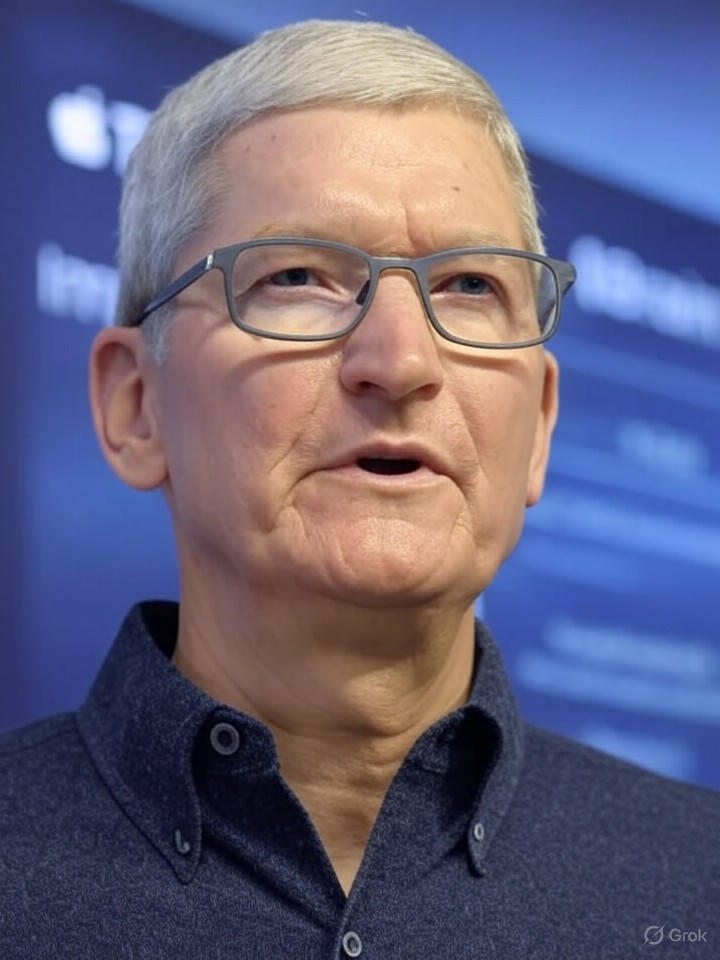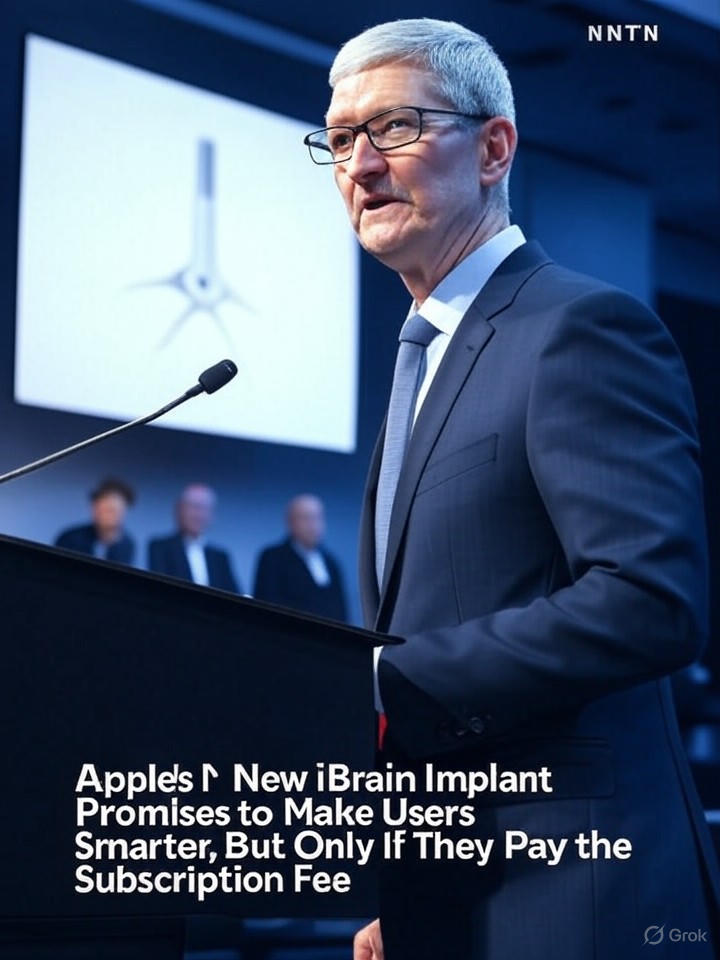CUPERTINO, CA – In a keynote that had tech enthusiasts drooling and ethicists weeping, Apple CEO Tim Cook announced the iBrain, a revolutionary neural implant designed to boost human intelligence. 'Think different... for a fee,' Cook quipped, as the audience applauded wildly. The device, surgically inserted into the frontal lobe, promises to enhance memory, creativity, and problem-solving skills. But here's the catch: full functionality requires a $19.99 monthly subscription, because apparently, even your thoughts need an app store.
Early adopters are already lining up outside Apple Stores, eager to upgrade their gray matter. 'I've always felt like my brain was running on iOS 1.0,' said one fanboy, clutching his iPhone 15. The iBrain integrates seamlessly with other Apple products, allowing users to Siri their subconscious or AirDrop ideas directly into their minds. However, non-subscribers are limited to 'basic mode,' which reportedly includes features like remembering your own name and basic arithmetic – essentially turning your brain into a free trial version.
Critics are slamming the move as peak capitalism. 'Apple is monetizing cognition now? What's next, charging for breathing?' tweeted one outraged commentator. The company defended the model, stating that premium thoughts include ad-free daydreaming and exclusive access to 'genius-level' epiphanies. Budget users, meanwhile, might find themselves interrupted by mental pop-ups urging them to upgrade, like 'Unlock quantum physics insights for just $4.99 extra!'
In a demo that wowed the crowd, Cook showcased how the iBrain could solve complex puzzles in seconds – but only after scanning his Apple Card. Without payment, the implant defaulted to suggesting he 'take a nap instead.' Privacy concerns? Apple assures users that all thoughts are encrypted, though they reserve the right to analyze them for 'targeted inspiration suggestions,' which sound suspiciously like ads for the latest MacBook.
The rollout isn't without glitches. Beta testers reported side effects like involuntary humming of Apple jingles or an inexplicable urge to buy more AirPods. One user claimed his iBrain locked him out after a missed payment, leaving him unable to recall his anniversary. 'It was like my brain went into recovery mode,' he lamented. Apple Support's solution? Restore from iCloud backup – for an additional fee, of course.
Competitors are scrambling to respond. Google is rumored to be developing an Android equivalent called MindDroid, which would be free but bombard users with sponsored thoughts about search queries. Meanwhile, conspiracy theorists are convinced this is the start of a dystopian future where only the wealthy get to be smart. 'Soon, the 1% will have iBrains, and the rest of us will be stuck with flip-phone intellects,' warned a viral TikTok video.
As the iBrain hits shelves next quarter, one thing's clear: Apple isn't just selling devices anymore; they're hawking enlightenment on layaway. Whether this sparks a new era of human potential or just another way to drain your wallet remains to be seen. But hey, if you're reading this and pondering deeply, maybe it's time to check your subscription status.

